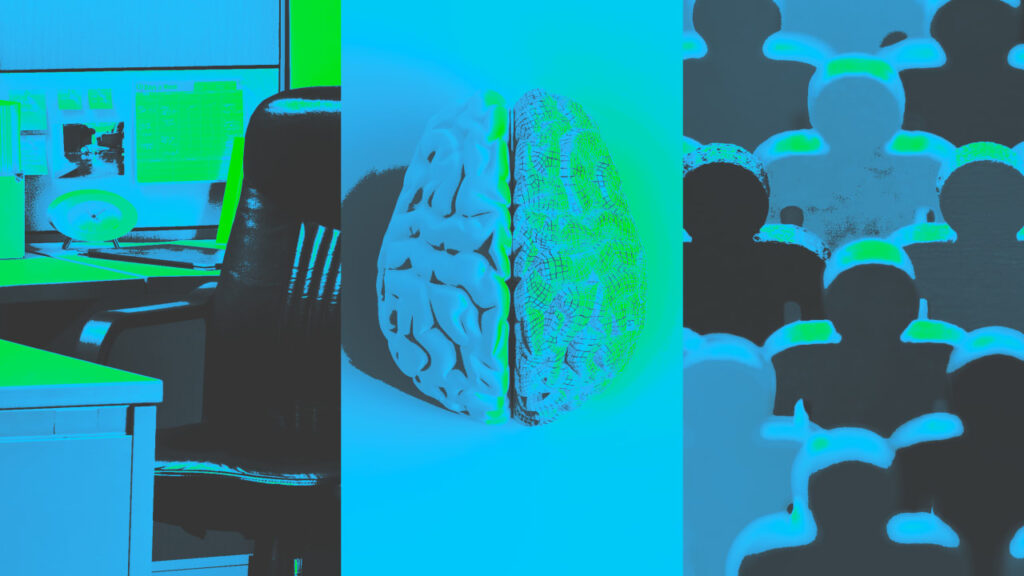
Coffee badging. The Great Stay. Revenge quitting.
This year has seen no shortage of terms to describe the new ways we work.
As 2024 comes to a close, Fast Company’s Work Life team has been thinking about the major trends we’ve seen this year—but also what the new year will bring. Here are some of the biggest stories we’ll be monitoring in 2025.
1. The fight over RTO
Why are we still talking about a return to office? We’ve been chronicling the push to get workers back into physical offices for over three years now, but the rift between what most employees want (flexibility and a hybrid schedule) and what some leaders want (in-office collaboration and a return to pre-pandemic workplace norms) remains. As much as everyone wants to move on from this debate, we’re likely to see more companies adjust their policies in 2025, especially following major employers like Amazon deciding to bring workers back to the office five days a week.
Even with additional in-office pressure, many companies will still commit to some version of hybrid work. “Hybrid work is the new normal,” Sam Naficy, CEO of the employee visibility and productivity intelligence software provider Prodoscore, tells writer Stephanie Vozza. “Despite the push for in-office mandates, hybrid work is here to stay, driven by the need for flexibility. Few companies will fully revert to all-office models without risking talent loss.”
Of course, in some cases, RTO office mandates may actually be designed to get workers to quit. Last month, Elon Musk and Vivek Ramaswamy, who are set to lead the new Department of Government Efficiency, wrote an op-ed in The Wall Street Journal expressing the hope that requiring federal workers to come in to an office full-time would lead to resignations. “Requiring federal employees to come to the office five days a week would result in a wave of voluntary terminations that we welcome: If federal employees don’t want to show up, American taxpayers shouldn’t pay them for the COVID-era privilege of staying home,” they wrote.
2. AI affecting jobs—and hiring
We’ve spent much of this year chronicling employee concerns about the ways in which AI will affect careers. That impact is already being felt. A November study showed a 21% reduction in job posts “for automation-prone jobs related to writing and coding compared to jobs requiring manual-intensive skills” since ChatGPT was introduced.
Many experts, however, are bullish on the positive impacts of AI to reduce boring tasks—and even to create new jobs altogether. “It is normal to worry about the loss of jobs that comes with a new technology,” writes futurist Frank Diana. “But there has always been fear around new technologies, and almost without fail, the new technology has led to more jobs than the previous technology ever allowed.”
One of the areas where we’re already AI changing things is in hiring. While many companies have long used AI to screen candidates through applicant-tracking systems, more are likely to embrace AI in the process in 2025.
According to one recent study from Resume Builder, nearly 70% plan to use AI for some part of the hiring process by the end of 2025. It’s not just the initial vetting process that is transforming: 23% of companies surveyed already rely on AI to conduct interviews and another 19% said they plan to start using AI for interviews within the next year.
Adam Charlson, managing partner of Focus Search Partners, cautions against allowing AI to take over the process. “AI can quickly sift through a vast pool of résumés and pinpoint those that best match the keywords in a job posting,” writes Charlson. “But can AI alone truly determine the best fit for a position? The short answer is no. While AI can do a lot, it doesn’t replace a human when it comes to hiring.”
3. The backlash to DEI
This year saw many companies—including Walmart, Lowe’s, Ford, John Deere, Harley Davidson, Jack Daniels, and Toyota—scale back DEI programs in response to conservative activism. Anti-DEI sentiment appears to be reaching some employees, too. In a November 2024 Pew study, 23% of workers described focusing on DEI as “a bad thing” compared with 16% in 2023.
But DEI is not over, writes Out & Equal’s Erin Uritus and Witeck Communications, Inc.’s Bob Witeck. “The truth is that we are not witnessing a sea change in the marketplace or an erosion in public attitudes,” write Uritus and Witeck. “Most businesses understand that DEI is good for workers and good for business.”
With the arrival of a new Trump administration, there will likely be additional pressures on DEI programs. We’ll be watching carefully in the new year to explore how businesses committed to greater equity in the workplace rebrand or shift their efforts.






